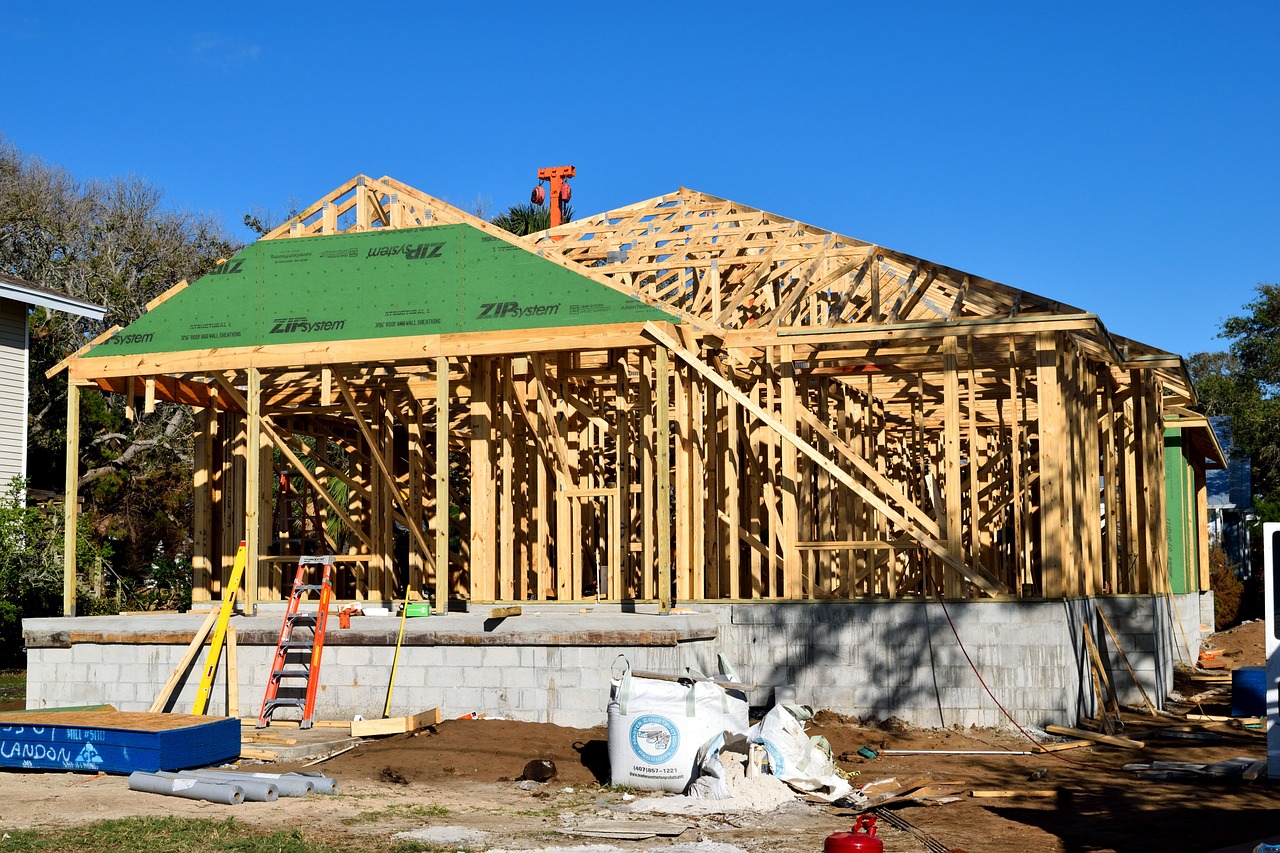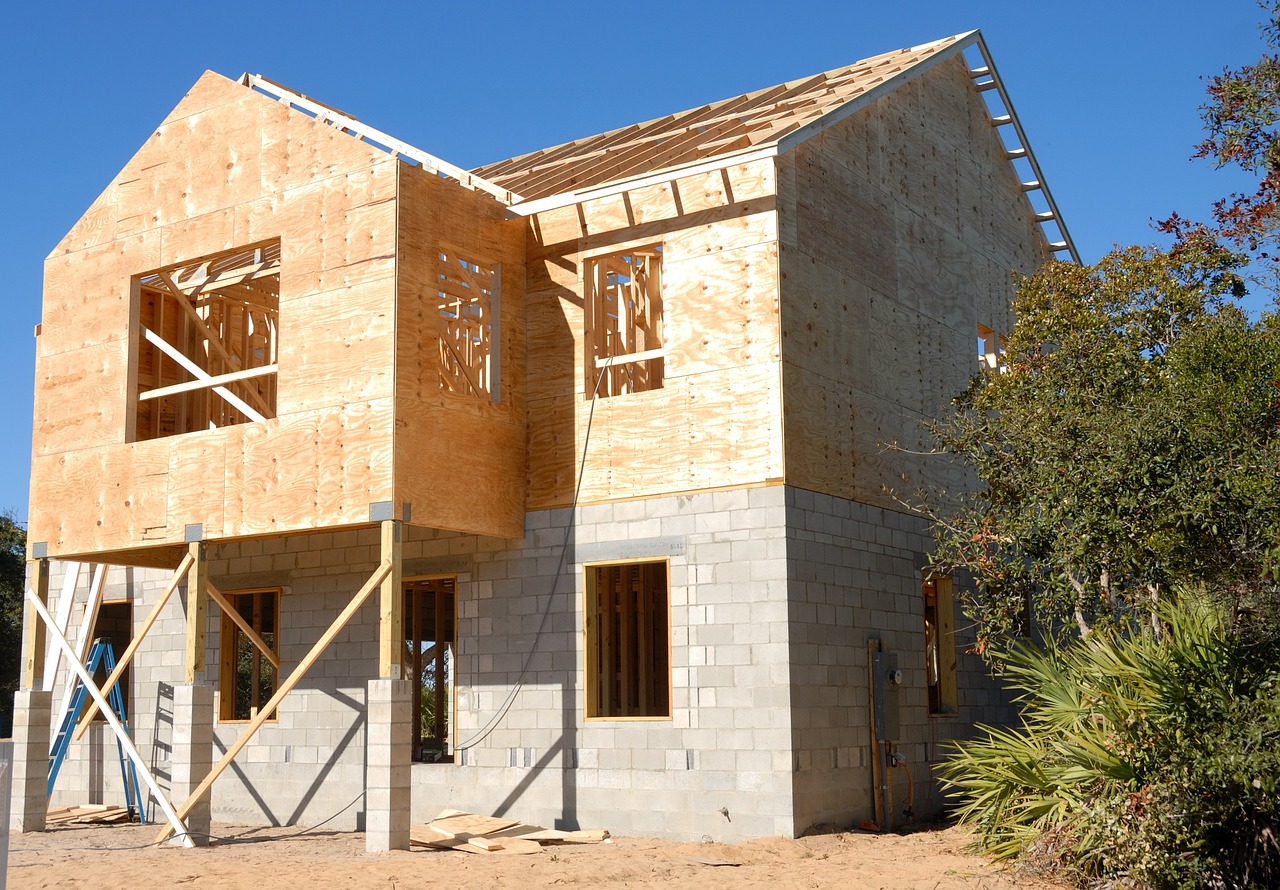
Imagine you are on the cusp of becoming a homeowner, filled with anticipation about the journey that lies ahead. As you navigate the complexities of buying a home, have you ever stopped to ponder the industry to which mortgages belong? In this article, we will uncover the fascinating realm in which mortgages reside, shedding light on the crucial industry that plays a significant role in making your homeownership dreams a reality. Get ready to embark on an enlightening exploration.

Table of Contents
Real Estate and Finance
Welcome to the world of real estate and finance! In this article, we will explore the fascinating world of mortgages and their role in the real estate industry. Whether you are considering becoming a homeowner or simply looking to expand your knowledge in this area, understanding mortgages is crucial. So let’s dive in!
Overview of Mortgage Industry
Definition of Mortgage
A mortgage is a loan that is used to finance the purchase of a property, typically a home. It is a secured loan where the property being purchased serves as collateral. In simpler terms, it is a legal agreement between you (the borrower) and a lender, where the lender provides funds for you to buy a property, and you agree to repay the loan over a set period of time.
Role of Mortgage in Real Estate
Mortgages play a crucial role in the real estate industry by making homeownership more accessible and affordable. For most people, purchasing a home is one of the biggest financial decisions they will make in their lifetime. Since buying a property outright is not feasible for many, mortgages offer a way to realize the dream of homeownership by spreading the cost over several years.
Importance of Mortgage in Homeownership
Mortgages not only enable individuals and families to become homeowners but also have a significant impact on their financial stability and wealth accumulation. Through mortgage payments, you build equity in your property, which can serve as a valuable asset in the future. Additionally, having a mortgage can provide tax benefits and potentially increase your credit score, opening up opportunities for other financial endeavors.
Major Players in the Mortgage Industry
Banks and Financial Institutions
Banks and financial institutions are the backbone of the mortgage industry. They are the primary lenders that provide mortgage loans to borrowers. These institutions have the necessary capital and infrastructure to offer a wide range of mortgage products and services. They use their extensive networks to market mortgages, assess borrowers’ creditworthiness, and manage the loan process from application to closing.
Mortgage Lenders
Mortgage lenders are entities that specialize in originating and servicing mortgage loans. They may be independent companies or subsidiaries of banks and financial institutions. Mortgage lenders often have more flexibility in their lending criteria and can cater to borrowers with different financial profiles. They work closely with borrowers, helping them navigate the mortgage process and determining the most suitable loan options for their needs.
Mortgage Brokers
Mortgage brokers act as intermediaries between borrowers and lenders. They connect borrowers with various lenders offering mortgage products and negotiate the terms on behalf of the borrower. Mortgage brokers have access to multiple loan options from different lenders, which allows them to find the most competitive rates and terms for their clients. They play a valuable role in simplifying the mortgage application process and can offer personalized guidance based on the borrower’s financial situation.
Appraisers and Inspectors
Appraisers and inspectors are important players in the mortgage industry as their role is to assess the value and condition of the property being considered for a mortgage. Appraisers determine the fair market value of the property, ensuring that the loan amount does not exceed the property’s worth. Inspectors, on the other hand, thoroughly evaluate the property’s condition and identify any potential issues that may affect its value or require repairs. These professionals provide necessary information to lenders and borrowers, ensuring that the mortgage is based on accurate and reliable assessments.
Types of Mortgages
Fixed-Rate Mortgages
A fixed-rate mortgage is one of the most common types of mortgages available. With a fixed-rate mortgage, the interest rate remains constant throughout the entire loan term, providing borrowers with predictable monthly payments. This type of mortgage is often preferred by individuals who value stability and want to budget their expenses accurately. Fixed-rate mortgages typically have loan terms ranging from 15 to 30 years.
Adjustable-Rate Mortgages
Unlike fixed-rate mortgages, adjustable-rate mortgages (ARMs) have interest rates that can fluctuate over time. The initial interest rate is typically lower compared to fixed-rate mortgages, but it can adjust periodically based on changes in market conditions. The adjustment periods may vary, such as every year or every few years. ARMs are suitable for borrowers who anticipate their income to increase or who plan to sell the property before the interest rate adjustments occur.
Government-Backed Mortgages
Government-backed mortgages are loans that are insured or guaranteed by government agencies, such as the Federal Housing Administration (FHA), the Department of Veterans Affairs (VA), or the United States Department of Agriculture (USDA). These mortgages aim to make homeownership more accessible for specific populations, such as low to moderate-income borrowers or veterans. Government-backed mortgages often have more lenient qualification requirements and lower down payment options.
Jumbo Mortgages
Jumbo mortgages are loans that exceed the conforming loan limits set by government-sponsored enterprises like Fannie Mae and Freddie Mac. They are often used for high-value properties or in areas with high housing costs. Jumbo mortgages typically have stricter qualification criteria and higher interest rates compared to conventional mortgages. Borrowers who require larger loan amounts for luxury properties or high-cost areas may consider a jumbo mortgage.

Mortgage Application Process
Prequalification
The first step in the mortgage application process is prequalification. Prequalification involves providing basic information about your financial situation to a lender, who will assess your eligibility for a mortgage. This step gives you an idea of how much you may be able to borrow and helps you determine a realistic budget for your home search. Prequalification is a useful tool to understand your financial standing and make informed decisions during the house-hunting process.
Documentation and Verification
Once you have identified a property and are ready to move forward with a mortgage application, you will need to provide the necessary documentation and undergo verification. This includes submitting proof of income, employment verification, bank statements, tax returns, and other relevant financial records. The lender will review these documents to assess your creditworthiness and ensure that you meet their lending criteria.
Underwriting
After the documentation and verification process, the lender will enter the underwriting stage. During underwriting, the lender evaluates your credit history, income, assets, and other factors to determine the risk associated with lending to you. The underwriter assesses whether you meet the lender’s guidelines and guidelines set by regulatory bodies. This step is crucial in determining the terms, interest rate, and conditions of your mortgage loan.
Closing
The closing is the final step in the mortgage application process. It is the meeting where you, the seller, and the lender finalize the sale and transfer ownership of the property. At the closing, you will sign the mortgage loan documents, pay any closing costs, and receive the keys to your new home. It is essential to review all the loan documents carefully and ask any questions before signing. The closing process ensures a smooth transition from the mortgage application phase to homeownership.
Mortgage Rates and Terms
Factors Impacting Mortgage Rates
Mortgage rates are influenced by various factors in the financial market. Some key factors impacting mortgage rates include the current state of the economy, inflation rates, the Federal Reserve’s monetary policy, and market demand for mortgage-backed securities. Lenders also consider the borrower’s creditworthiness, loan-to-value ratio, and down payment amount when determining the interest rate on a mortgage loan.
Types of Interest Rates
When it comes to mortgage loans, there are primarily two types of interest rates: fixed and adjustable. Fixed interest rates remain constant throughout the loan term, providing stability and predictability for borrowers. Adjustable interest rates, as mentioned earlier, can fluctuate over time based on market conditions or specific adjustment periods. The choice between fixed and adjustable interest rates depends on your financial goals, risk tolerance, and market conditions.
Loan Terms and Repayment Options
Mortgage loan terms refer to the length of time in which you will repay the loan. The most common mortgage loan terms are 15 years and 30 years, but other options may be available depending on the lender. Shorter loan terms typically come with higher monthly payments but result in significant interest savings over time. Repayment options may include principal and interest, interest-only, or a combination of both, depending on the specific mortgage product and your financial needs.

Mortgage Regulations and Compliance
Key Regulatory Bodies
The mortgage industry is subject to various regulations and oversight from federal, state, and local entities. Some key regulatory bodies in the United States include the Consumer Financial Protection Bureau (CFPB), the Federal Housing Finance Agency (FHFA), and the Office of the Comptroller of the Currency (OCC). These regulatory bodies ensure that lenders and other industry participants adhere to fair lending practices, consumer protection laws, and anti-discrimination legislation.
Consumer Protection Laws
Consumer protection laws play a vital role in safeguarding borrowers throughout the mortgage process. These laws, including the Truth in Lending Act (TILA), the Real Estate Settlement Procedures Act (RESPA), and the Home Mortgage Disclosure Act (HMDA), require lenders to provide transparent and accurate information to borrowers. They also establish guidelines for loan disclosures, fair lending practices, and dispute resolution mechanisms, ensuring that borrowers are treated fairly and have access to necessary information.
Anti-Discrimination Laws
In an effort to promote equal access to housing and mortgage lending, anti-discrimination laws prohibit discriminatory practices based on race, color, religion, national origin, sex, familial status, or disability. The Fair Housing Act (FHA) and the Equal Credit Opportunity Act (ECOA) are examples of laws that promote fair lending practices and prevent discrimination in the mortgage industry. These laws ensure that all individuals have the same opportunities to secure a mortgage loan, regardless of their personal characteristics.
Mortgage-Related Costs and Fees
Origination Fees
Origination fees are charges imposed by lenders to cover the cost of processing a mortgage loan. These fees typically include administrative expenses, credit checks, underwriting, and document preparation. Origination fees are expressed as a percentage of the loan amount and can vary from lender to lender. It’s important to consider origination fees when comparing mortgage offers, as they can significantly impact the overall cost of obtaining a mortgage.
Appraisal Fees
Appraisal fees are incurred when you request an appraisal of the property being financed. An appraisal is an unbiased assessment of the property’s market value conducted by a certified appraiser. Lenders require appraisals to ensure that the loan amount does not exceed the property’s worth. The cost of an appraisal varies depending on factors like the location, size, and complexity of the property. Appraisal fees are typically paid upfront by the borrower.
Closing Costs
Closing costs are various fees and expenses associated with finalizing a mortgage loan and transferring ownership of the property. These costs can include loan origination fees, appraisal fees, title insurance, attorney fees, recording fees, and prepaid items like property taxes and homeowners insurance. Closing costs are typically expressed as a percentage of the loan amount and can vary depending on factors like the property location, loan type, and lender.
Private Mortgage Insurance
Private Mortgage Insurance (PMI) is a type of insurance that protects the lender in case the borrower defaults on the mortgage. It is typically required when the borrower’s down payment is less than 20% of the property’s value. PMI can be a significant additional cost for borrowers, as it is usually calculated based on the loan-to-value ratio and added to the monthly mortgage payment. However, once the borrower builds sufficient equity in the property, PMI can be canceled.

Mortgage-Backed Securities
Definition and Explanation
Mortgage-backed securities (MBS) are financial instruments that are created by pooling together a group of mortgages and selling them to investors. MBS allow lenders to convert their mortgage loan portfolios into tradable assets, providing them with additional liquidity to make more mortgage loans. These securities essentially represent investors’ ownership interests in the underlying pool of mortgages, with returns generated from the interest and principal payments made by borrowers.
Securitization Process
The securitization process involves several steps. First, mortgage lenders originate individual mortgage loans with borrower payments as collateral. Then, the loans are bundled together into a pool and transferred to a special purpose vehicle (SPV) created solely for this purpose. The SPV issues MBS to investors, who receive cash flows from the underlying mortgage payments. By selling these securities, lenders mitigate their risk and gain access to additional funds to continue lending.
Risks and Benefits
Mortgage-backed securities present both risks and benefits. For investors, MBS offer opportunities for diversification and potentially higher returns compared to other fixed-income investments. However, MBS also come with inherent risks, such as prepayment risk, interest rate risk, and credit risk. If borrowers prepay their mortgages or interest rates fluctuate, the returns on MBS may be affected. Additionally, during economic downturns, the default risk on the underlying mortgages may increase, impacting investors’ returns.
Impact of Mortgages on Economy
Housing Market Stability
The mortgage industry plays a crucial role in maintaining stability in the housing market. By providing accessible financing options, mortgages ensure that potential homebuyers can enter the market and stimulate demand for housing. The availability of mortgage loans promotes a healthy balance between supply and demand, driving economic growth and maintaining property values. Mortgages also contribute to the overall economy by generating revenues for lenders and creating jobs in the real estate and financial sectors.
Job Creation
The mortgage industry is a significant contributor to job creation. From loan officers and underwriters to real estate agents and appraisers, a variety of professions thrive due to the mortgage industry’s activity. As mortgage demand increases, so does the need for skilled professionals to handle various stages of the mortgage application process. With a robust mortgage industry, employment opportunities are created, providing individuals with stable income and contributing to the overall economy.
Revenue Generation for Financial Institutions
The mortgage industry presents a significant revenue-generating opportunity for financial institutions. Lending institutions profit from the interest charged on mortgages, origination fees, and other associated costs and fees. As mortgages are repaid over time, lenders earn a steady stream of interest income. Additionally, financial institutions may collect fees for services such as loan servicing and the sale of mortgage-backed securities. These revenue streams contribute to the financial health and sustainability of these institutions.
In conclusion, the mortgage industry plays a vital role in the real estate and finance sectors. Mortgages enable individuals and families to achieve the dream of homeownership and build wealth over time. With various types of mortgages available, borrowers have a range of options to choose from based on their financial goals and circumstances. As the industry continues to evolve and adapt to changing market conditions and regulatory requirements, mortgages will remain a crucial component of the economy, contributing to housing market stability, job creation, and financial growth.








